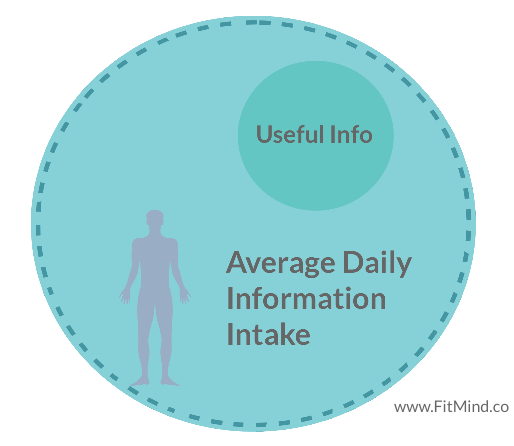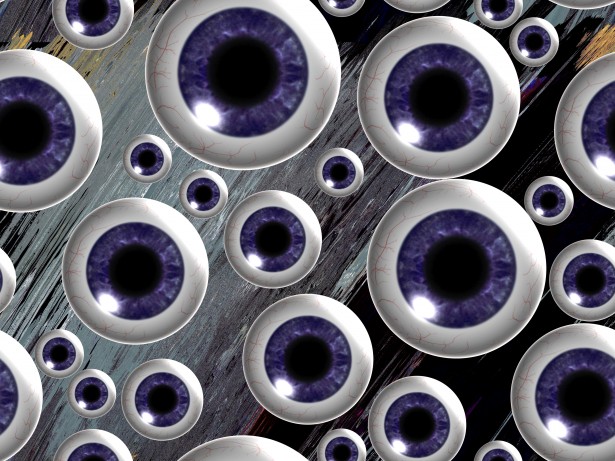Attention is a limited resource, so pay attention to where you pay attention. — Howard Rheingold
We are living in an attention economy. The most valuable commodity in today’s economy is our constantly divided, app-distracted and seemingly arbitrary attention. Celebrities make so much money for this very reason: they are able to predictably capture attention and exert influence.
For millions of years we had very limited external stimuli compared to the ads that inundate our lives today. The brain has not been able to evolve quickly enough to truly grasp the difference between those pixels on the screen and a living human being. This creates a physiology-environment mismatch.
Companies are tapping into this hardwired, insatiable desire for content and novelty in order to influence purchasing decisions. Tech giants like Facebook and Google make almost all of their money off of advertising that is predicated on being able to capture our attention. In some sense, these firms are hacking our primal instincts.

Moths clamor toward electric lamps, thinking they are following the moon’s light. Their mental software evolved over millions of years to use the moon’s distant light at a constant angle in order to travel in straight lines at night (called transverse orientation). Electricity leaves them baffled and renders their primordial instincts noxious. Today, companies use analogous tactics to manipulate us into paying attention. By understanding the mechanisms at play, we can avoid becoming like the bewildered moths that mistake lamps for the moon.
Information Overload
A constant barrage of news, updates and notifications overwhelm our minds as a result of the attention economy. Information output goes hand-in hand with the all-out attention grab we’re seeing take place. The way to attract attention, as companies have figured out, is to produce content. The result of this is our seemingly free access to such an abundance of information.
But there’s a price we must pay for all this seemingly free content: our attention.
Attention isn’t something we should give up so easily. It’s not just currency for companies; it’s our own most valuable resource. What you pay attention to throughout the day affects your conscious and subconscious thoughts. As I’ve written about previously, how you direct your attention literally shapes your brain. Our attention is like the camera for our own personal TV show: it largely determines how we perceive the world.
For example, celebrity images can influence our perception of beauty. Constantly looking at other peoples’ seemingly perfect lives in ads and on social media can make us view our own lives differently. What we observe every day is important because it subtly makes us think differently about the world and about ourselves. The current overabundance of such material is significantly impacting our subconscious minds.
Furthermore, without focused attention on a single task, it becomes difficult to accomplish anything worthwhile. Only our undivided attention allows us to succeed in producing something of value. Deliberate, concentrated attention is only possible when we resist the multitude of primarily useless information coming from all directions.
We might seem capable of processing all of this information, but it actually creates less room and time for the quality ideas and thoughts. Attention to detail suffers when you’re drinking out of a fire hose of information.
The Fix: A Low Information Diet
The solution is to decrease the quantity of inputs. By tapering off of our addiction to information and cutting the “empty calories,” oruseless information, we can recover a sense of ownership over our lives. The low information diet, as this is called, involves carefully vetting inputs to ensure that they are of value. Ask honestly whether your consumption of something enhances or detracts from your quality of life.

By focusing only on useful information, we can create a lot of extra time and attention. It becomes easier to accomplish difficult tasks. There’s a simple formula that seems to apply to creativity: less inputs = more creative output. Novel ideas flow best when the mind isn’t tasked with other thoughts. Information overload threatens creativity because new data must be processed, allowing no room for us to generate novel thoughts. The low information diet is a direct remedy for the information overload that plagues us.
Most importantly we can pay attention to each other and ourselves. We can use the free time for introspective thought, forming our own ideas and opinions. Instead of needing to anxiously check our phones every few minutes for a hit of dopamine, we can hold more meaningful conversations.
Originally published at www.fitmind.co.


